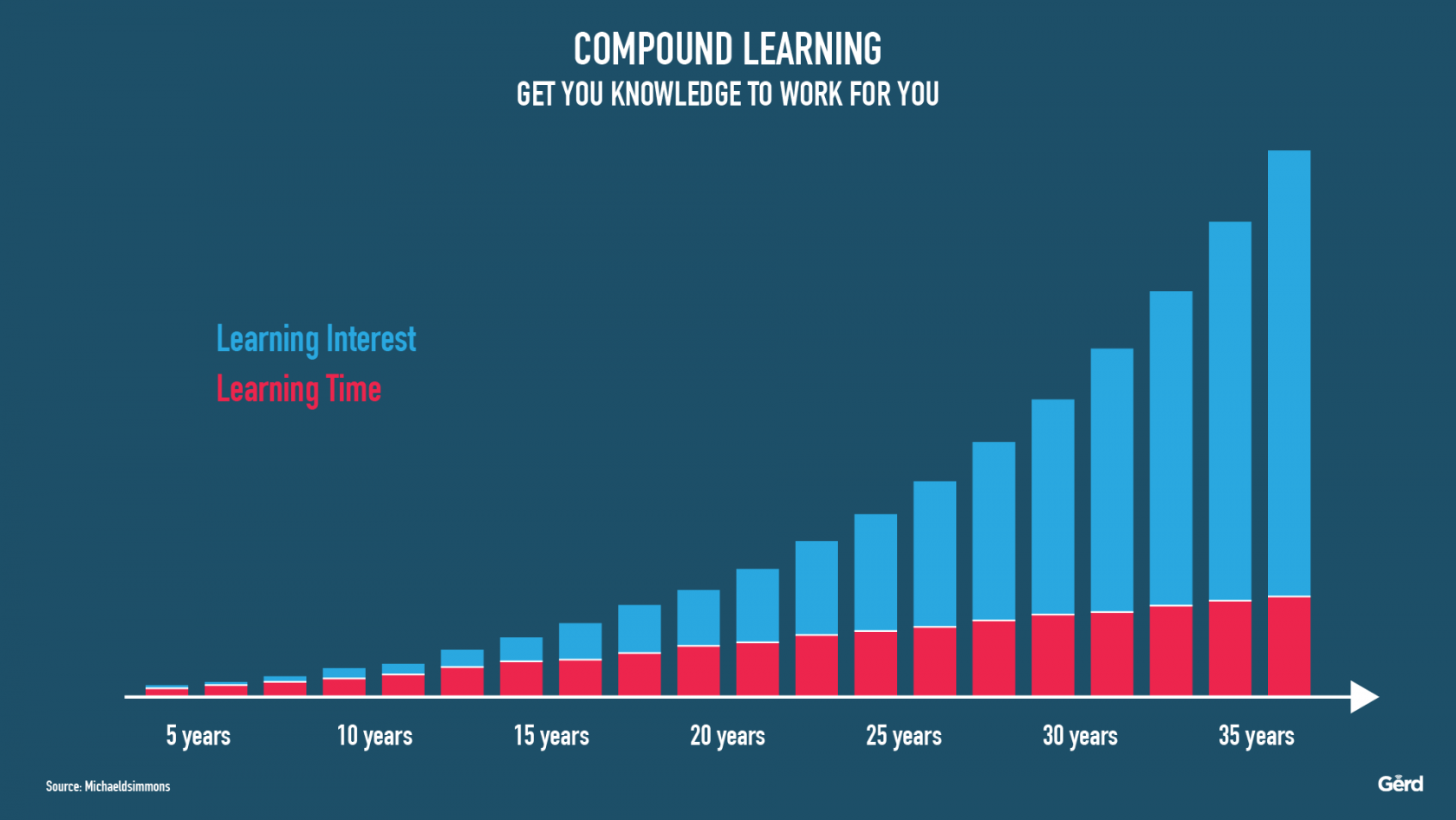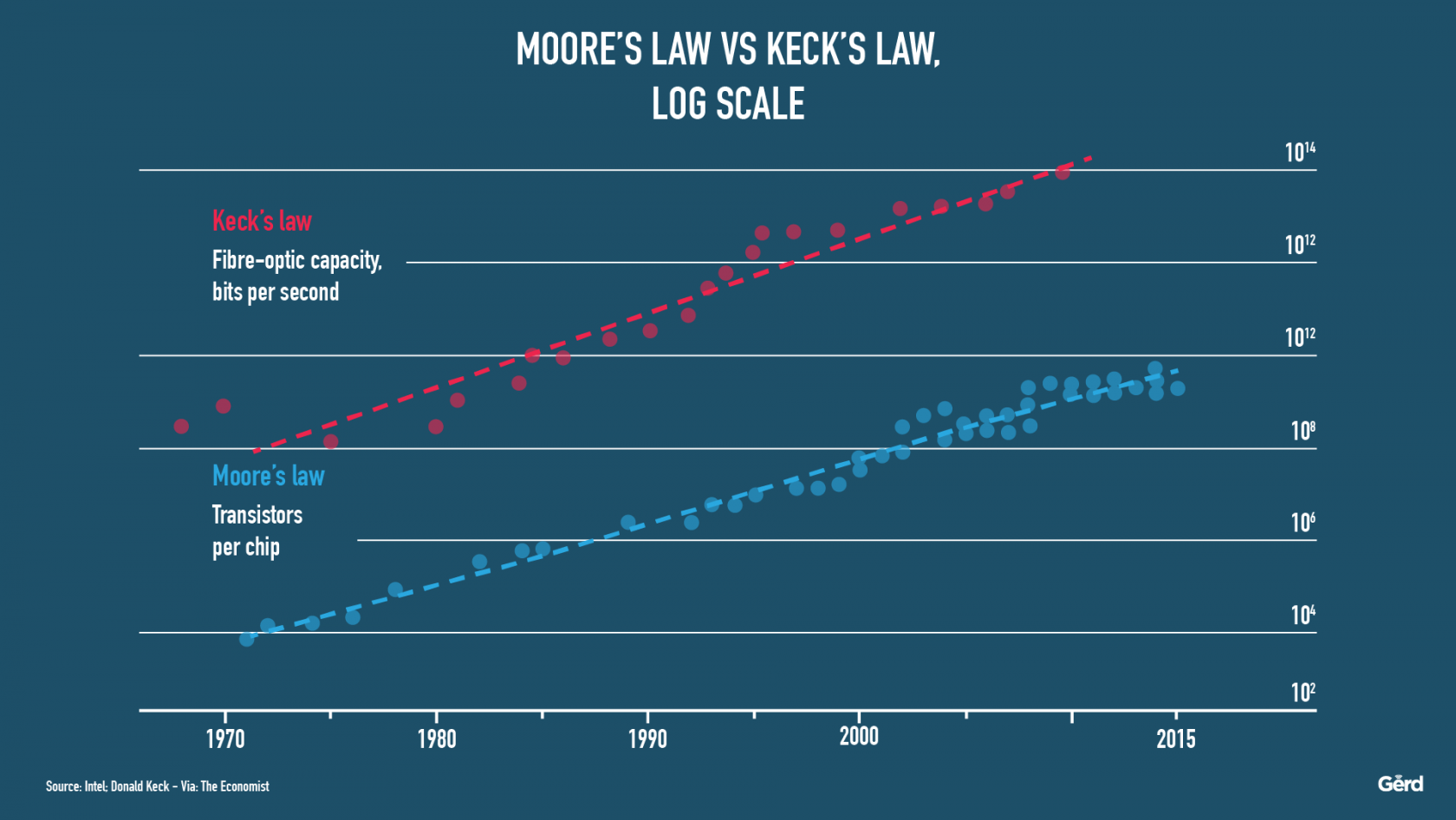Riffing off this post by Michael and Thrive Global (below): Imagine making resolutions such as ”Hey, I am going to read about a new and interesting topic every day for 30 minutes”. Great. Do we expect a difference between your understanding of the world and mine tomorrow? Probably not. The day after? Again, probably not. But what about a year from now? Yes, there is likely to be a difference thanks to the accumulated knowledge of 10,950 minutes of reading. What about 10 years from now? Now, there is certainly be a difference as you may have clocked 109, 500 minutes of reading. Then what about 30 years?
(…) Another powerful example of compounded learning is the rise of Warren Buffet, the investor. When once asked on live TV by a journalist how to get smarter, Buffet held up a stack of paper and said, ”Read 500 pages like this every day. That’s how knowledge works. It builds up like compound interest. All of you can do it but I guarantee not many of you will do it “
Thrive Global “Compound Learning: One good thing a day”


Here's a related quote from Chapter 10 of my book “Technology vs Humanity” “Even if Moore’s Law may eventually cease to apply as far as microchips are concerned, many of the fields of technology, from communications bandwidth to artificial intelligence (AI) and deep learning, are still likely to grow at least exponentially and with combinatorial effects— the changes reinforcing one another. Zoom forward another ten years, and we may indeed end up 95% automated, hyperconnected, virtualized, uber-efficient, and much less human than we could ever imagine today.”

